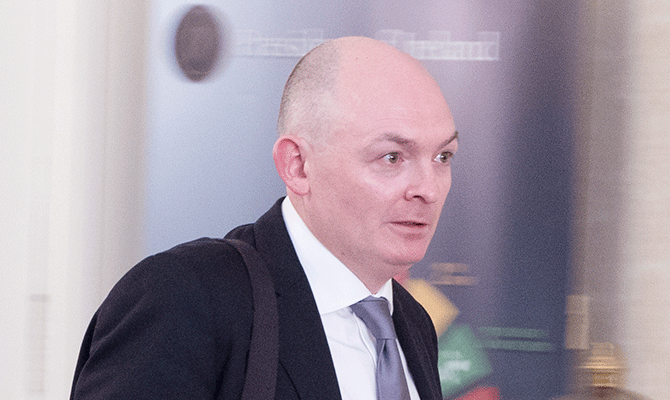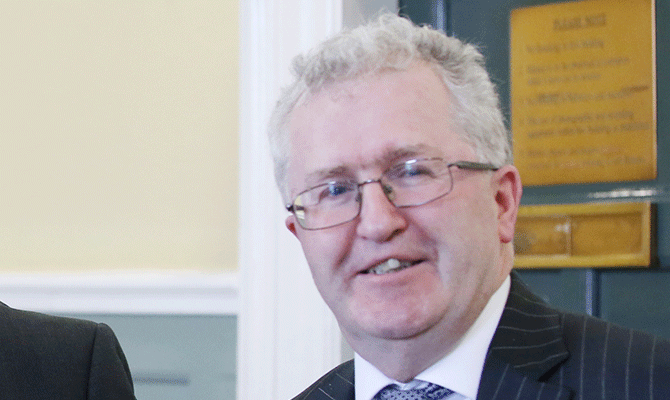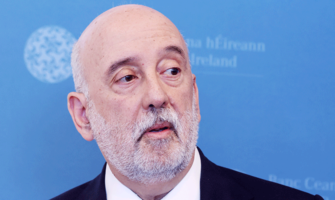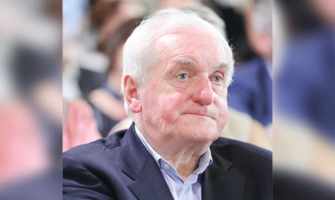
Rossa Fanning
GOLDHAWK IS not one bit surprised at former foreign minister Simon Coveney’s complaint about a “lack of balanced debate” regarding the Middle East conflict and that it was “driven by emotion”. The mature, statesmanlike Coveney appears to be concerned at the unbalanced reaction of emotional Irish citizens swayed by the slaughter of 42,000 circa Palestinians, including many thousands of children. And then there is Israel’s activities adjacent to Irish peacekeeping troops, which have been misinterpreted as threatening. Simon is, of course, concerned also at the plight of Jewish people in Ireland who, he says, feel “under siege”. Unfortunately, the impressionable Irish continue with their ‘unbalanced’ concern at the bloody and very real sieges in Gaza and Beirut.
It may be coincidental but Coveney’s compassion comes at a time when the Government is making noises about implementing or re-enacting the Occupied Territories Bill (OTB), just as a general election is on the verge of being called. And Simon has form when it comes to emotional mood swings about the Palestinians.
In 2019 and 2020, in the year or so before the vote on Ireland’s quest to secure a seat on the UN Security Council, Coveney, then foreign minister, made some rather emotional speeches at the UN – as did Irish diplomats under his command – about Palestinians and their brutal occupiers, Israel (not then under siege either in Cork, Dublin or Tel Aviv).
Ireland won its seat on June 18, 2020, and Coveney returned to Dublin that same week to block the proposal from Fianna Fáil and the Green Party to implement the OTB. Nice timing.
Simon’s unemotional and very balanced behaviour towards the Palestinians continued in the same period while hiding behind then attorney general Séamus Woulfe’s advice that the OTB would conflict with EU trade law.
When author of the bill senator Frances Black provided more positive findings on the issue from two eminent international lawyers and an Irish senior counsel, Coveney said contemptuously: “One can find a lawyer somewhere who will give an alternative view”.
One of the lawyers that Coveney dismissed with such cavalier disregard is Takis Tridimas, professor of EU law at King’s College London and one of the most frequently quoted academic authors by advocates general of the European Court of Justice. He has much experience in European law and its courts, and his academic work has also been frequently cited in the courts in Ireland.
But sure what would these guys know compared to Messrs Woulfe and Coveney?
Black’s lawyers’ cited Article 36 of the EU treaties, which says that “public policy” overrides the block on EU states applying sanctions. Woulfe claimed, erroneously, that there is “no case law to suggest that the exception for ‘public policy’” is permissible.

Seamus Woulfe
In fact Tridimas, in his legal opinion, refers to a case that came before the European Court of Justice (concerning EU sanctions against Russia during the Ukrainian crisis) that certainly does “suggest” such action is covered by the “public policy” provision.
That was over five years ago. But last month Tridimas and another leading expert on EU trade law, Prof Panos Koutrakos, visited Dublin and told a press conference that the OTB is compatible with EU law. They also said that the bill is further strengthened by the International Court of Justice (ICJ) ruling against Israel last July. They challenged the legal advice given to the Government by former AG Woulfe.
Suddenly, with Irish voters in uproar (emotional?) at Israel’s genocide and with a general election around the corner, another AG, current incumbent Rossa Fanning, has been asked to provide advice on its legal status. Apparently, Fanning has concerns about the bill conflicting with the EU single market but has, according to last weekend’s Sunday Independent, conceded that there are examples of EU states acting outside the single market.
Happily, these discoveries should now allow the Government to pass their own OTB – thus taking the political credit for Black’s work – although they may just promise to pass the legislation in the run-up to the election. More good timing.
Sound familiar?




















